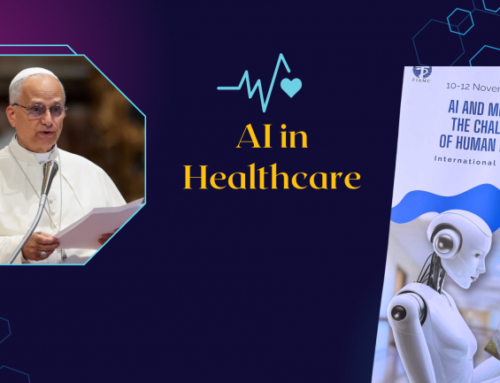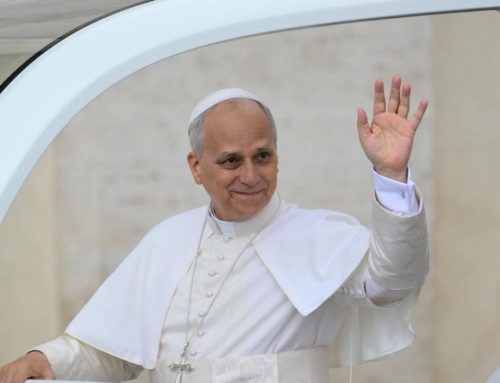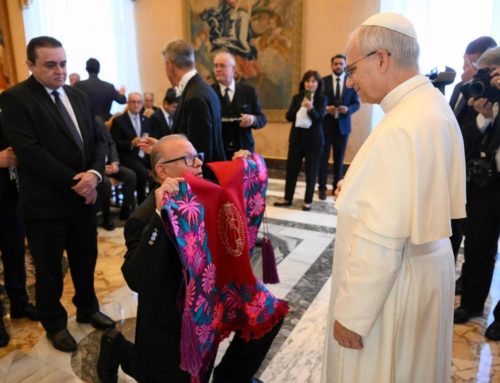26 September 1983
To the University College for Aspiring Missionaries and Missionary doctors (CUAMM)
Beloved!
1. I am deeply happy to meet with you who have come to Rome to pray on the tomb of the Apostle Peter.
Above all I address my greeting to your Bishop, Monsignor Filippo Franceschi, as well as to the Founder of your organization, Prof. Francesco Canova, and to the members of the Administrative and Directive Council.
I greet the students who are preparing for their mission and all the doctors who are already working in missionary areas and those who have completed their service and have returned.
Finally, I greet all your relatives here present with you.
2. Still fresh in my mind is the memory of the day when, just a year ago, I spoke in your city on the occasion of the seven hundred fiftieth anniversary of the death of St. Anthony. The warm welcome of the people, the deep fervour of the celebrations, the fresh enthusiasm of the youth left a deep impression on my heart which will not fade.
During the pastoral visit of mine I wanted to meet first with a group of the sick to emphasize, with that gesture, how the practice of charity is closely linked to the evangelical commitment of the Christian community.
Serving Christ in others
3. It was precisely the Christian will to serve Christ in the brethren, the needy, the sick, which in 1950 prompted the beginning of your organization’s activity.
The love of Christ, your statutes recall, is the force which impelled you to make the decision to dedicate part of your lives “to the service of needy populations in developing countries, thus making your personal and sincere contribution to ‘the cause of man’s liberation and growth'” (Stat. Art. 1).
Always marked by charity
4. Reviewing the activity which you carry out and the considerable number of persons whom, in the medical, paramedical and technical fields, you have prepared and sent out during these years to Africa, Asia, Latin America and the Middle East, I cannot but praise and thank the Lord, together with you.
The apostolate which you carry out by dedicating yourselves with Christian intent and careful preparation to the service of others, especially if they are poor and suffering, is one of the bravest testimonies today’s Church renders its Lord.
The Council document which the Fathers addressed to the Christian laity emphasized how important and irreplaceable is your active presence and your convinced participation in the spread of Jesus Christ’s message.
In fact, this is what we read in that Decree: “The greatest commandment in the law is to love God with one’s whole heart and one’s neighbour as oneself”. Christ made this commandment of love of one’s neighbour his own and enriched it with a new meaning. For he wanted to identify himself with his brethren as the object of this love when he said, “As often as you did it for one of my least brothers, you did it for me” (cf. Mt 25:40). Taking on human nature, he bound the whole human race to himself as a family through supernatural solidarity and established charity as the mark of his disciples, saying “This is how all will know you for my disciples: your love for one another”.
Therefore, may your action always be marked by charity, whose works are a duty and an inalienable right of every Christian. Aware as you are of the bond which links all men in a sole family, and together with the duty which justice imposes so that not only the effects of evil but also the causes may be eliminated, work so that those who receive your help may little by little be freed from their dependence on others and may become self-sufficient.
5. Towards that end, you will solicit in every way the active participation and full corresponsibility of the local populations, not by imposing examples of development imported from outside, but by fostering the manifestation of and the progressive evolution towards the maturing of every authentic value of the indigenous cultures. Indeed, your presence insomuch as it is made up of foreigners who have come to a country to give disinterested and effective help, assumes a temporary and supplementary, even if very useful, form; that is, your presence must constantly appear as being aimed at its own passing thanks to the establishment in loco of a state of self-sufficiency.
Inspired therefore by those ideals of moral justice in the national and international fields which constitute the presupposition for this peace you will not fail to offer your collaboration in every valid initiative of the local authorities, both coordinating the work of the missionary hospitals with the programmes elaborated by the national health systems, and by intervening, as agreed, in the public structures operating in the individual countries.
There is not one who does not see, beloved brothers and sisters, how this total “involvement” in the social reality of the communities in which we will get assumes that you have those gifts of patience, humility and detachment from personal points of view that are rooted in your own cultural origin, unreserved readiness to give yourselves, the capacity to read daily events in the penetrating light of the faith. And how could you live constantly in a similar spirit of service and of authentic collaboration without that profound interior drive which comes from Communion with Christ, encountered in participation in the Eucharist, in meditation on Sacred Scriptures, and in personal prayer? I therefore exhort you, beloved, to this commitment to the interior life in the certainty that in Christ each of you will be able to find light during bewilderment, support during toil, comfort during moments of trial, misunderstanding and failure. May Christ be the sincere friend and trusted companion to each of you along the paths of the world.
Renewed commitment
May the pilgrimage which has brought you here during this Holy Year of the Redemption therefore constitute for all of you a moment of reflection in the light of faith, and of inspiration to your renewed commitment to give through your freely assumed task of human advancement and of service in developing countries, a clear witness of solidarity and practical implementation of the values of the Gospel.
May my Blessing accompany you.
John Paul II






